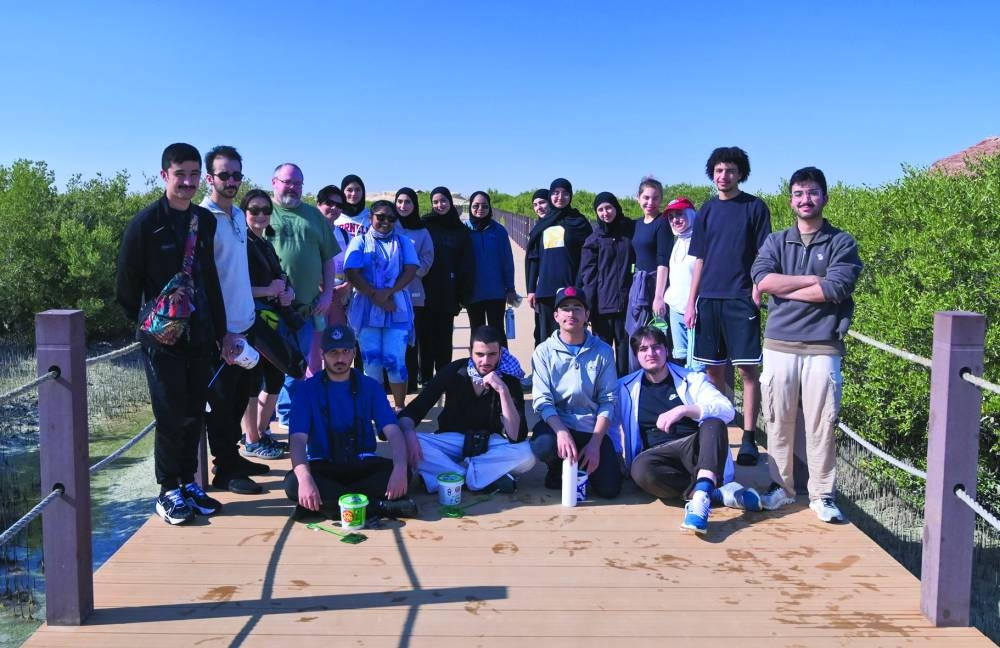First-year pre-medical students at Weill Cornell Medicine-Qatar (WCM-Q) had the opportunity to identify and collect invertebrates and observe the adaptation of flora and fauna in the mangrove forest at Jazirat Bin Ghannam, popularly known as Purple Island.
A total of 53 students, divided into three groups, visited different sites on the island on three separate days. Each pair of students was tasked with collecting one specimen.
Under the supervision of Dr Kuei-Chiu Chen, a professor of biology at WCM-Q, the students identified different species of marine invertebrates and collected specimens of crabs, snails, sea stars, moss animals, segmented worms, clams, sponges, and shrimps — all of which lack backbones as the defining feature of the animals.
The students also learned about desert hyacinths and how these plants survive without chlorophyll by feeding on surrounding plants. In addition, they explored the vital role of mangrove forests in supporting biodiversity by providing habitats for a wide range of organisms.
The annual field trip was part of the biology class, where the students were learning about barcoding in the laboratory to identify species of organisms. In order to conduct the polymerase chain reaction, they extracted DNA from their specimens to understand the genetic sequence of the organisms they had collected.
Dr Chen said: “By collecting specimens and observing morphological differences and habitats, students can study molecular characteristics of each organism by analysing DNA sequences to identify species. Although our students are focused on human medicine, we aim to broaden their perspective on how physicians can enhance patient care. Nature itself can serve as therapy and support patient recovery.”
The collection of specimens on the island was approved by the Ministry of Environment and Climate Change.

WCM-Q students pose for a group photo at Purple Island.
